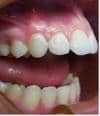According to researchers at the University of Miami’s Sylvester Comprehensive Cancer Center, oral rinse could detect the early development of head and neck squamous cell carcinoma (HNSCC). The strategy involves the detection of CD44, a protein biomarker for HNSCC tumors, combined with the detection of cancer-related altered DNA that distinguishes cancer from benign diseases.
Currently, only 50% of head and neck cancer patients are cured of the disease. While late-stage HNSCC has a poor prognosis, cure rates exceed 80% if the cancer is caught early enough.
“Head and neck cancers are devastating for all patients. They are particularly challenging for the poor and disadvantaged, who often do not have the adequate, regular care that makes early detection more likely,” Elizabeth Franzmann, MD, assistant professor of otolaryngology at Miami, told the American Association of Cancer Research’s Web site. “Our study has shown that an oral rinse test, simple enough to be administered at any community health center, is likely to detect cancer about 90% of the time.”
While CD44 appears on the surface of cells in healthy tissue, it is elevated at least sevenfold in head and neck cancer. Franzmann and her colleagues theorized that CD44 could be detected in an oral rinse, which would flush out the CD44 protein by washing over the cellular membranes of interest in the throat and mouth.
The study began with an attempt to find if soluble CD44 alone was sufficient to distinguish between cancer and other diseases. The researchers collected oral rinses from 102 head and neck cancer patients and 69 control patients with benign diseases and history of tobacco or alcohol use. The test detected two patients with cancer or precancer before the disease was clinically evident. The study also detected few false positives among the control group. However, it was able to detect elevated levels of CD44 in only 62% of cancer patients.
The researchers also looked for another potential marker of cancer—the hypermethylation of promoter genes. In many cancer cells, DNA can be chemically modified without changing the actual DNA sequence. This hypermethylation process can encourage the growth of cancer by effectively shutting down the genes that control the cell’s growth cycle.
According to Franzmann, an oral rinse sample contains enough cells to determine the presence of hypermethylated DNA.
“If put into practice, an oral rinse screening test for head and neck squamous cell cancer could be more effective than the PSA test for prostate cancer,” Franzmann said. “Many lives could be saved through a test that is no more invasive than gargling.”









